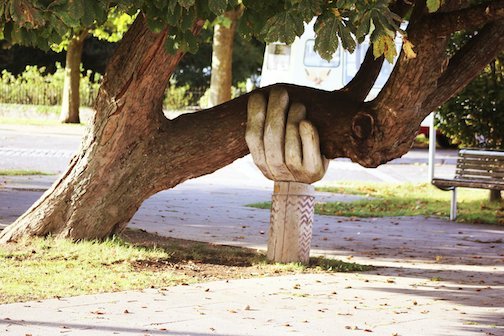Let People Grieve: 4 Ways to Avoid Grief Shaming Others
Everyone goes through grief at some point in life. Loss is inevitable. Whether a loved one passes away, you lose a job, or you’re mourning the death of a pet, grief is a very powerful human emotion. Unfortunately, when we’re not going through it ourselves, it’s easy to have opinions about grief that could harm those dealing with it. You might even end up grief-shaming others, whether you realize it or not.
Grief-shaming occurs when you make judgments about someone over the way they’re dealing with their loss. You might think you’re being helpful or encouraging, but you could be doing more harm than good in helping them through the stages of grief. With that in mind, let’s look at four ways to avoid grief-shaming others so that you can provide support without shame.
1. Don’t Tell Them to Be Strong
You might think that telling someone to be strong and encouraging them to power through their grief is helpful. Unfortunately, it puts added pressure on the person already struggling. The grieving period isn’t a time to be strong. In fact, if someone tries to pull themselves up on their own and “ignore” their true feelings, they’re likely to get stuck in the process and not fully process their grief. It’s okay for someone to express their emotions and even experience emotional breakdowns when they’re grieving. It’s up to the people around them to provide support and strength, but that’s a burden you shouldn’t put on the person going through it.
2. Don’t Reduce the Impact of the Loss
When someone passes away, it’s not uncommon to hear things like, “they’re in a better place.” Again, people who say this might have the best intentions, but it’s not a great way to provide comfort. It might actually make the person grieving feel worse about their emotions. Don’t negate the impact of a loss by suggesting it’s immediately better, and don’t try to offer a “bright side” to someone who isn’t ready to accept it.
3. Don’t Suggest It’s Been Too Long
While it’s important for everyone to move through the stages of grief in healthy, effective ways, there’s no ideal timeline for it. Some people can move through the stages quickly. For others, it can take weeks or months. Suggesting that someone “get over it” or telling them it’s time to move on isn’t helpful. In fact, it can make them feel guilty or powerless. They might start to think that something is wrong with them or that they’re grieving the wrong way. Give them the time they need to move forward and support them while they’re going through it.
4. Ask What You Can Do
One of the best ways to avoid grief-shaming others is simply to ask how you can help them. Sometimes, that might mean something as simple as offering a shoulder to cry on. If someone you care about is struggling to get out and withdrawing from things they love, ask them to get a cup of coffee with you. Practical help can make a big difference, too. Bring meals to them. Offer to take their kids for an afternoon. Run their errands. These are small actions that really take a lot of stress away from someone’s plate, so they can start to put all of their focus on healing.
Even if your heart is in the right place, it’s important to avoid shaming others when they’re already struggling. Grief shaming ends up making the stages of grief much more difficult to get through. Keep these ideas in mind if you know someone dealing with grief, and be there as a support system instead of shaming their pain. Schedule your free 30-minute consultation today!

